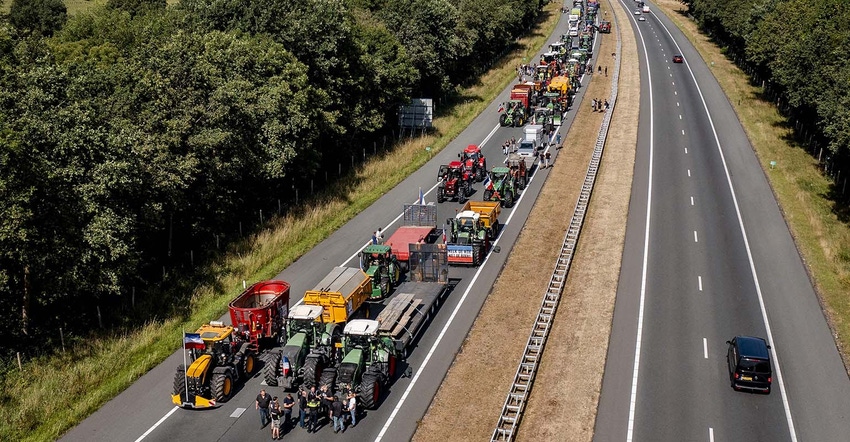
By Diederik Baazil
The Netherlands has embarked on a far-reaching transformation of its agricultural sector as it pushes to cut nitrogen emissions and revive natural lands.
The country famous for being one of the world’s biggest agriculture exporters no longer wants to prioritize exports, Minister for Nature and Nitrogen Policy Christianne van der Wal-Zeggelink said in an interview in her office in The Hague.
For months, the Netherlands has been engulfed by farmer protests after the government presented a nitrogen reduction target based on European Union regulations in June. If implemented, the government’s plan would require cuts of as much as 95% in emissions in some provinces, halving total emissions by 2030. The plan could reduce livestock in the Netherlands by a third over the next eight years.
In November, Van der Wal-Zeggelink laid out plans to buy out 2,000-3,000 “peak emitters” near nature reserves, in an attempt to quell the fury of Dutch farmers. This “one-time buyout plan” will run from April until the end of next year and aims to convince as many farmers as possible to voluntarily quit their business. This will be the “most generous” arrangement the government will offer, she said, “a more generous arrangement will not follow after this one.”
Van der Wal-Zeggelink has been in her post for nearly a year now and says she has a clear goal in mind. “Dutch nature is in a really bad state,” she said. “We have to develop a new agricultural system. One that our nature can carry, one in which we sustain a good quality of our water, and in which the agricultural sector contributes to our climate goals.”
The Netherlands is the second-largest exporter of agricultural products, with estimated exports of 104.7 billion euros ($110 billion) in 2021, according to Wageningen University. Cattle and fertilizers are key sources of nitrogen emissions.
The shift will have consequences for Dutch exports, she acknowledged. “Export percentages are not a goal for us. Our goal is emission reduction and to restore nature.” She noted that 58% of the Netherlands is agricultural lands, but only 1.3% of GDP is linked to agricultural goods.
In order to reset the balance many farmers will have to quit their agricultural businesses, especially those located near nature reserves. That prospect has elicited months of farmer protests. They blocked highways, drove their tractors to parliament, and even visited Van der Wal-Zeggelink’s home.
“I am happy we live in country in which people are allowed to protest, but the farmers have gone too far,” said Van der Wal-Zeggelink. “They have overstepped the boundaries of the law, and they have overstepped a moral boundary by coming to my home.”
Van der Wal-Zeggelink hopes her voluntary buyout plan will win the backing of enough farmers. But she already has a plan B: expropriation of the lands. The government will decide on next steps in the autumn of next year.
© 2022 Bloomberg L.P.
About the Author(s)
You May Also Like




